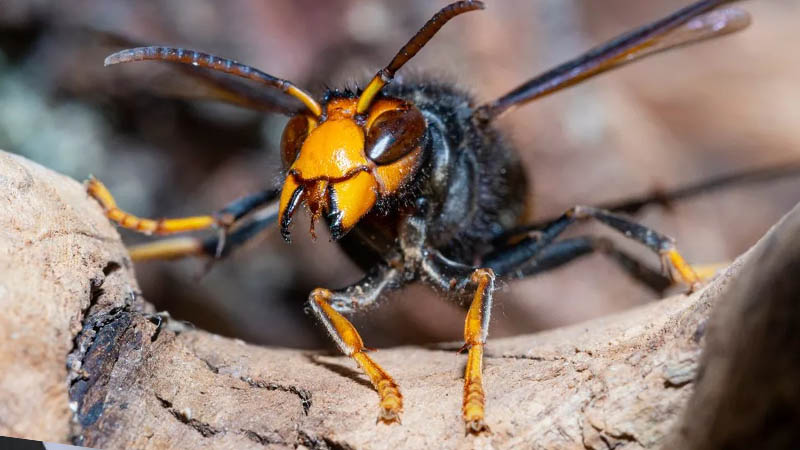
Members of the Public Urged to Report Sightings of Asian Hornet
People are being urged to report any sightings of Asian hornets this summer as nature groups warn of a potential surge in damaging invasive non-native species. The UK’s chief plant health officer, Nicola Spence, has called for beekeepers and the wider public to be increasingly vigilant after record sightings of the hornet in the country last year.
Asian hornets pose no greater risk to human health than native hornets but threaten honey bees and insect pollinators. The Environment Department (Defra) stated that the species is not yet established in the UK, but early trapping is fundamental to eradication efforts.
Richard Benwell, chief executive of the Wildlife and Countryside Link (WCL), emphasized the severe impact of invasive species. “Invasive species are already one of the biggest threats to the UK environment, from smothering waterways to outcompeting native species. They also cause billions of pounds in damage a year to homes and businesses and even pose risks to human health,” he said, via Daily Star.
The coalition, including The River Trust, Plantlife, and Buglife, is calling for Government action to mark Invasive Non-native Species Week starting Monday. “Investment in a fully-funded inspectorate and a strong invasive species strategy could make a contribution to halting nature’s decline and creating a more resilient economy,” Benwell added.
Dr. Rob Collins, director of Policy and Science at The Rivers Trust, highlighted the challenges faced by local trusts due to weather conditions over winter. “The weather conditions over winter have left its local trusts struggling to keep a wave of invasive species at bay as wet weather scuppers their efforts. The Government must properly support local conservation groups nationwide who are working tirelessly to stop our waterways being smothered by nature invaders,” he said.
The coalition is calling for the annual invasive species biosecurity budget to triple to £3 million, with an additional £3 million to fund a permanent dedicated invasive species Inspectorate. They also advocate for long-term Government funding for Local Action Groups (LAGs) to create a biosecurity “citizens army,” as recommended by the Environmental Audit Committee.
Other recommendations include reforming the process of listing “GB Invasive Species of Special Concern” and proactively managing the listed species that are already widespread and causing harm.
Defra has emphasized the importance of public participation in monitoring and controlling the Asian hornet population. Members of the public can report any sightings of the Asian hornet, which have a very dark body, a wide orange stripe on the fourth abdomen section, and yellow leg ends, via the Asian Hornet Watch App.
With increased vigilance and coordinated efforts, it is hoped that the spread of invasive species can be controlled, protecting the UK’s native wildlife and ecosystems.
People are being urged to report sightings of Asian hornets this summer as nature groups warn of a potential surge in damaging invasive non-native species
— Sky News (@SkyNews) May 20, 2024
Read the full story ⬇️
